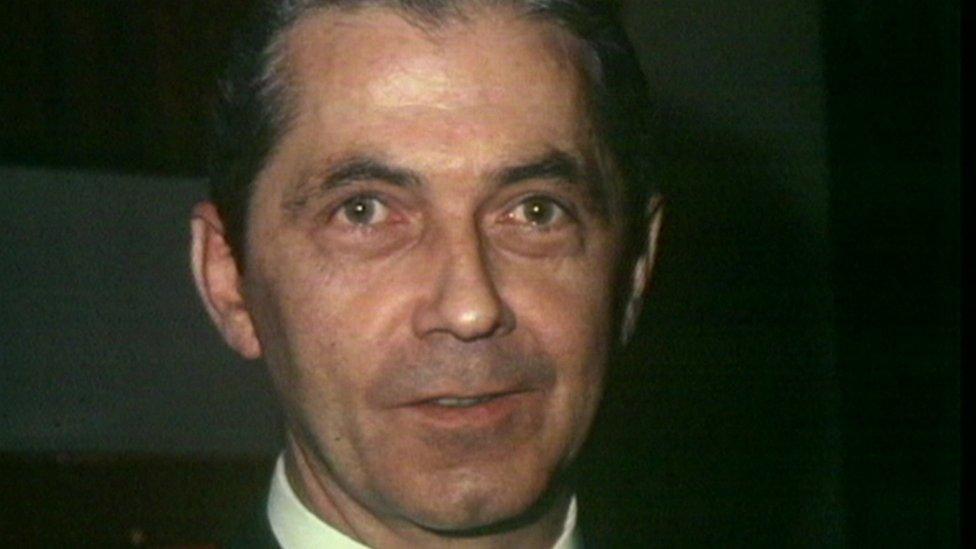The Troubles: Payments proposed for relatives of those killed
- Published
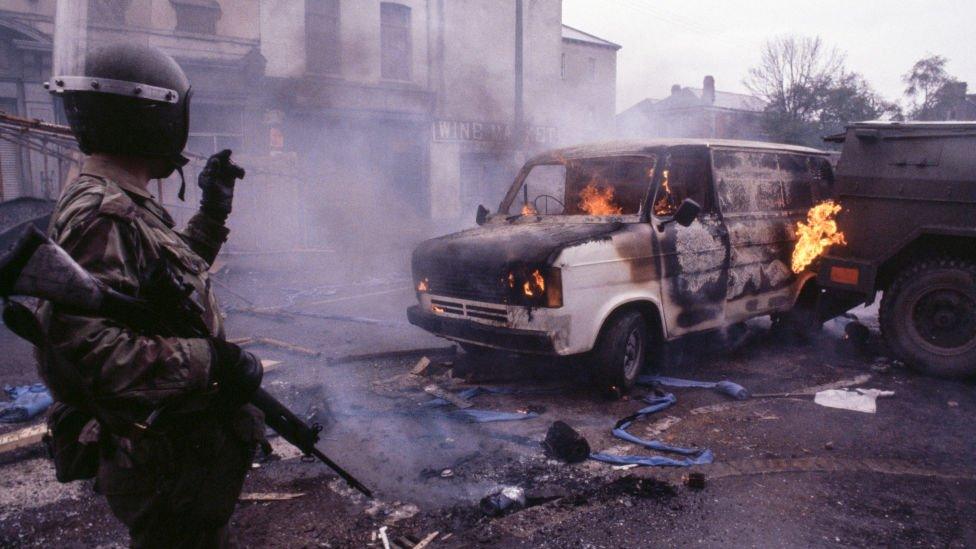
Bereavement payments should be made to relatives of people killed during the Troubles, including those who were paramilitaries, it has been proposed.
The suggestion is contained in an advice paper, external from the Commission for Victims and Survivors sent to the Executive Office at Stormont.
If acted upon, about 13,000 people could benefit.
No amount is suggested, but figures contained in the paper show the scheme could cost upwards of £130m.
That would cover one-off payments of £10,000, which would apply regardless of the circumstances in which a person was killed.
Awards of £50,000 would see the scheme requiring funding of almost £650m.
About 3,500 people were killed in the Troubles during more than 30 years of violence from the late 1960s onwards.
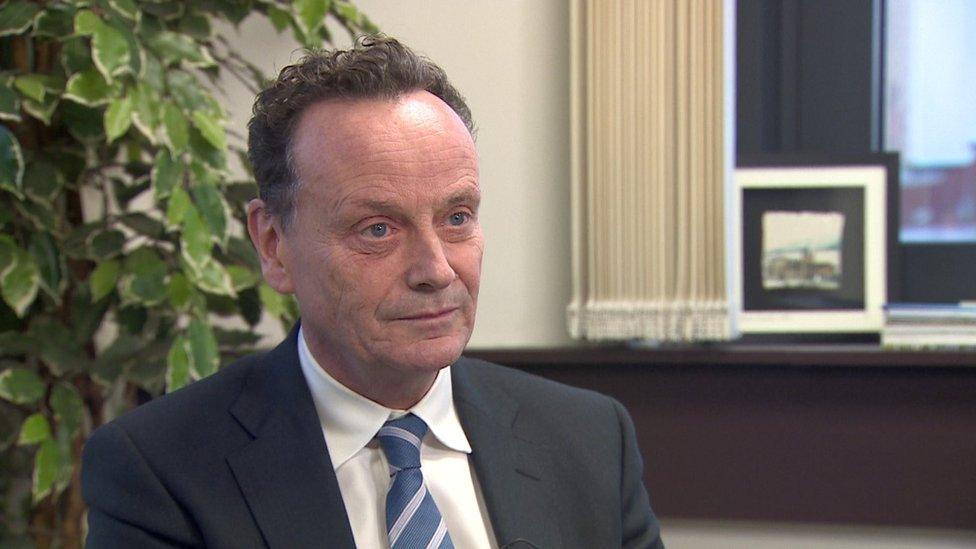
Victims' commissioner Ian Jeffers says the paper will be contentious
In a foreword to the document, victims' commissioner Ian Jeffers states: "I have no doubt this paper will be contentious.
"There will be some who find it difficult to accept the idea that all bereaved families should be included, regardless of who their deceased loved one was.
"I fully understand this challenge, but I do see the value of a recognition payment to those suggested in this paper in promoting reconciliation."
The suggestion echoes an idea previously floated in 2009 by the Consultative Group on the Past, headed by Lord Eames and Denis Bradley.
It proposed payments of £12,000.
However, it was rejected by the government on the basis that it lacked support.
In the paper, Mr Jeffers urges decision-makers to act "at pace", stating things cannot take the decade it took to implement a pension scheme for those badly injured during the Troubles.
"While not all will agree with the specifics of what we recommend, it can start a discussion around the acknowledgement of those bereaved as a result of the Troubles/conflict," he says.
"It's about acknowledgement" - Alan Brecknell
The paper states it would be for politicians to ultimately decide upon "qualifying individuals".
It goes on: "Beneficiaries should comprise: a spouse/partner, parent, child and siblings. Each should be entitled to the payment in their own right."
It acknowledges "the availability of funding may be an obstacle" currently, but adds that stance is "unsustainable".
'It's about acknowledgement'
Alan Brecknell, whose father was killed by loyalists at a bar in Silverbridge, County Armagh, in 1975, said: "It's far too late, we're 25 years on from the Good Friday Agreement, this is something that should have been dealt with at the time.
"That said, it's never too late, I suppose. It's about acknowledgement for me at this stage.
"I'm quite lucky that I'm comfortable in my own life and so is the rest of my family, and so is my mother, but there are other people out there who aren't, who have never financially ever recovered from what happened to them."
The commission has put forward the proposal as Mr Jeffers prepares to departs office.
He is leaving to become the chief executive of peace-building charity Co-operation Ireland.
Democratic Unionist Party (DUP) assembly member Emma Little-Pengelly said there should be "no equivalence between victim and victim-maker".
"The lie that reconciliation somehow demands that victims and their perpetrators be treated the same must be robustly challenged. This is a ridiculous suggestion and one that causes significant hurt to many victims," she said.
She said the Troubles Permanent Disablement Payment Scheme, which offers payments to those injured through no fault of their own, "provides criteria which could be used" for any bereavement payment.
A spokesman for the Social Democratic and Labour Party (SDLP) said: "The SDLP has supported bereaved families in their campaign for acknowledgement and a recognition payment following the loss of their loved ones for decades.
"This should have been addressed as part of the victims pension and it is now far beyond time that it was delivered."
An Alliance Party spokesman said: "We support bereavement payments in principle and note the recommendations from the outgoing Victims and Survivors Commissioner."
But he said there was a "range of practical issues to consider", adding: "We welcome further discussion and, in particular, the views of the families of victims on the best way forward."
Meanwhile, a spokesperson for Sinn Féin said the advice paper highlighted again "the need for a functioning executive, making decisions and accountable to the assembly".
"The reality is we have no executive as a result of the actions of one party," they added.
The DUP has been boycotting Stormont since early 2022 in protest against post-Brexit trade rules.
"The DUP should immediately end its damaging blockade of the Executive and work with the other parties to ensure workers get fair pay rises, to tackle waiting lists, to support frontline public services and make decisions on scores of outstanding issues," a Sinn Féin spokesperson said.
Related topics
- Published17 November 2023
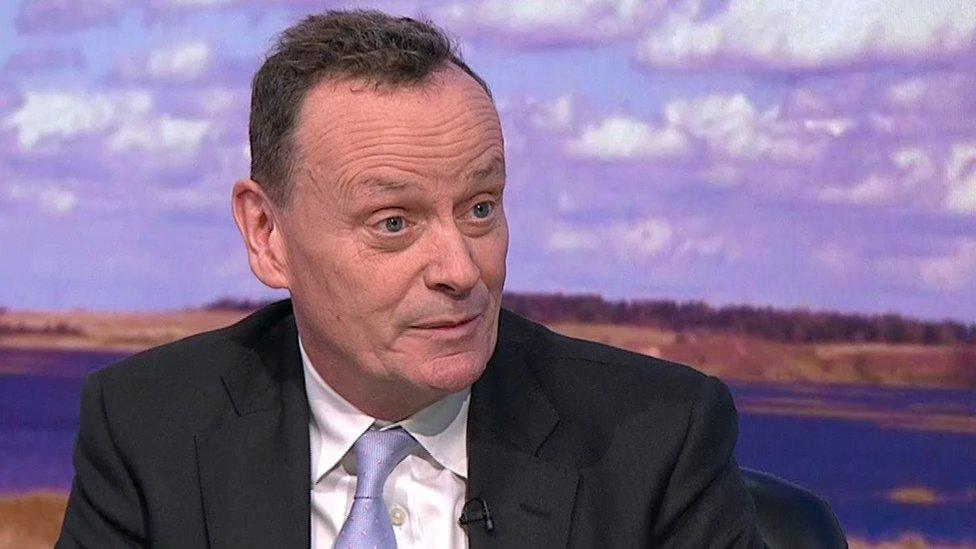
- Published5 September 2023
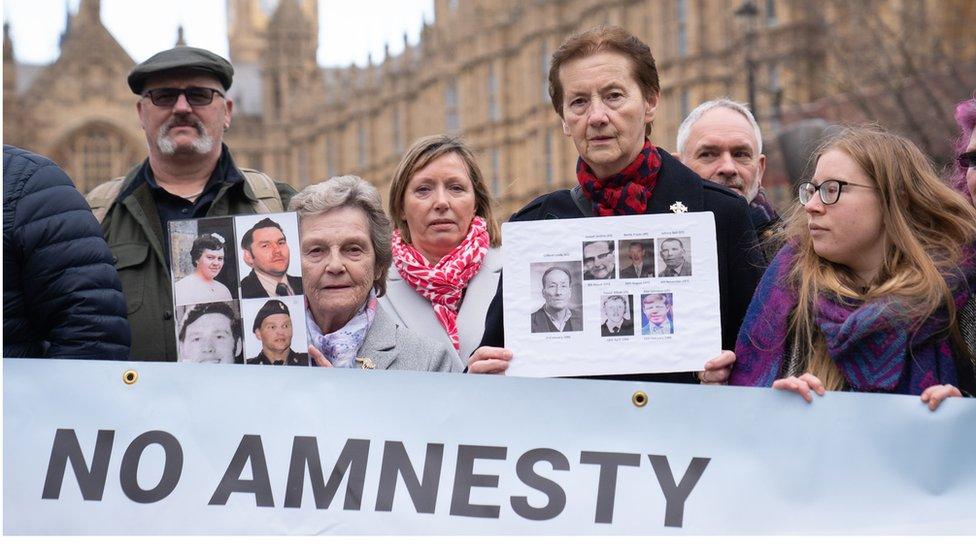
- Published23 December 2023
